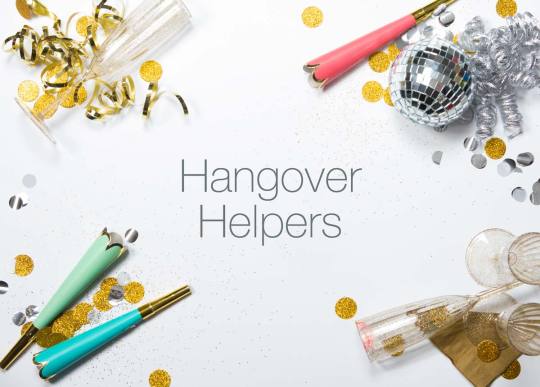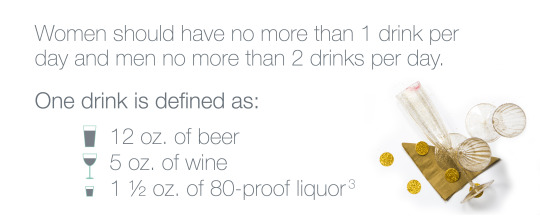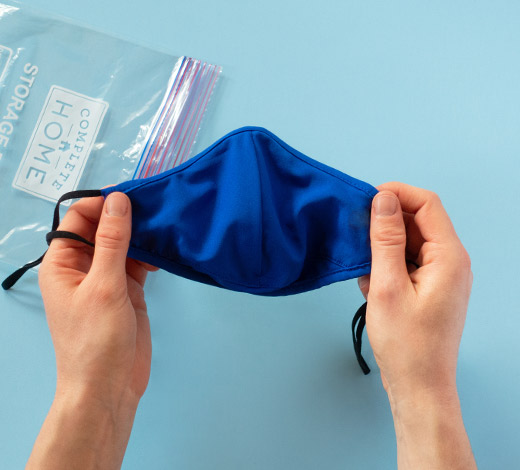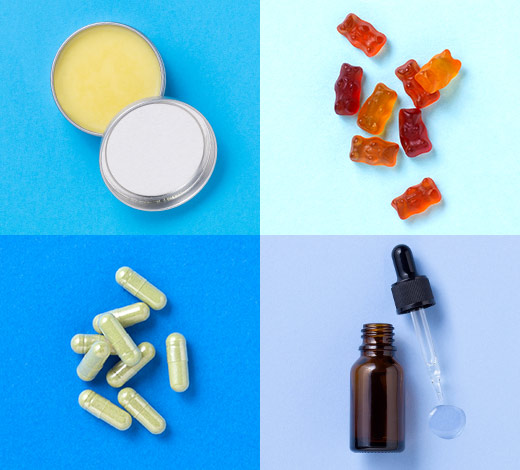
Last night was pretty boozy. Today, you’re feeling woozy.
Cue the pounding headache, queasy stomach and exhaustion—you, my friend, have a hangover.
Heavy drinking disrupts your central nervous system. Your liver goes into overtime to help cleanse your blood of alcohol and acetaldehyde, a chemical created when alcohol breaks down in the liver, and can’t sufficiently regulate blood sugar. Effects on hormones, blood chemistry and inflammatory chemicals can also contribute to that lousy morning-after feeling.1
Unfortunately, there is no research that any one remedy can significantly reduce the severity of a hangover—aside from drinking less. Everyone’s body is uniquely different, and so are our reactions to alcohol.2

Although there may not be a cure for a hangover, try these tips to help lessen the symptoms.

Bulk up on fatty foods
Any food can slow down your body’s absorption of alcohol and may reduce your blood-alcohol concentration (BAC) by about a third. Fattier foods are your best bet. Remember, food has to be in your stomach before imbibing to have any impact, so eating at bedtime won’t help.2
Try prickly pear extract
Experts aren’t exactly sure how it works, but drinking prickly pear extract hours before Happy Hour might lessen your day-after symptoms by about half. The extract has a protein that can curb the inflammation you can get from drinking too much.2

Drink clear liquor
Sticking to clear liquors, such as vodka and gin, may reduce some of your hangover symptoms. This is because of chemical compounds called congeners—which are basically anything in alcohol besides alcohol and water. These compounds can bring on the inflammation that makes your hangover worse. Darker-colored booze such as bourbon, scotch and tequila tend to have higher levels.2
Alternate with water
Water fluids can slow the rate at which your body absorbs alcohol, so drinking more of it can lower your BAC. Alternate alcoholic drinks with a tall glass of water. Hangover symptoms like headaches, nausea and fatigue are partly due to dehydration, so replenishing your body with hefty helpings of H2O can help.2

Take NSAIDs (but skip the Tylenol)
Some research shows that because inflammatory responses to alcohol may largely be the cause of your hangover, aspirin may be effective in preventing it.4 Most painkillers peak after about four hours, so a bedtime dose probably won’t help by the time you wake up.5 Most importantly, don’t take acetaminophen (Tylenol) after a night of drinking. The combination could hurt your liver.2
Restore your electrolytes
Alcohol is a diuretic; in other words, it increases urination, causing you to lose a lot of liquid and become dehydrated. Sports drinks and salty soups can help replace the salt and potassium you lost after drinking.
Avoid hair of the dog
The worst hangover symptoms hit when blood-alcohol levels drop to zero. If you start the next day with a drink, it will only postpone your hangover. This is because of a brain chemical called glutamate. When you drink, alcohol holds back this chemical, which causes your brain to make more of it. When you sober up, you still have excess amounts of glutamate floating around in your brain, causing nausea and fatigue. Another drink will only delay your symptoms.2
Sources
- http://www.hopkinsmedicine.org/healthlibrary/conditions/adult/nervous_system_disorders/Hangover_Headache_22,HangoverHeadache/
- http://www.webmd.com/balance/features/hangover-helpers
- https://medlineplus.gov/ency/article/002041.htm
- https://www.researchgate.net/profile/Neil_Mcgregor/publication/45658907_The_alcohol_hangover_research_group_consensus_statement_on_best_practice_in_alcohol_hangover_research/links/02bfe50feec8776c22000000.pdf
- http://www.webmd.com/balance/ss/slideshow-hangover-myths


